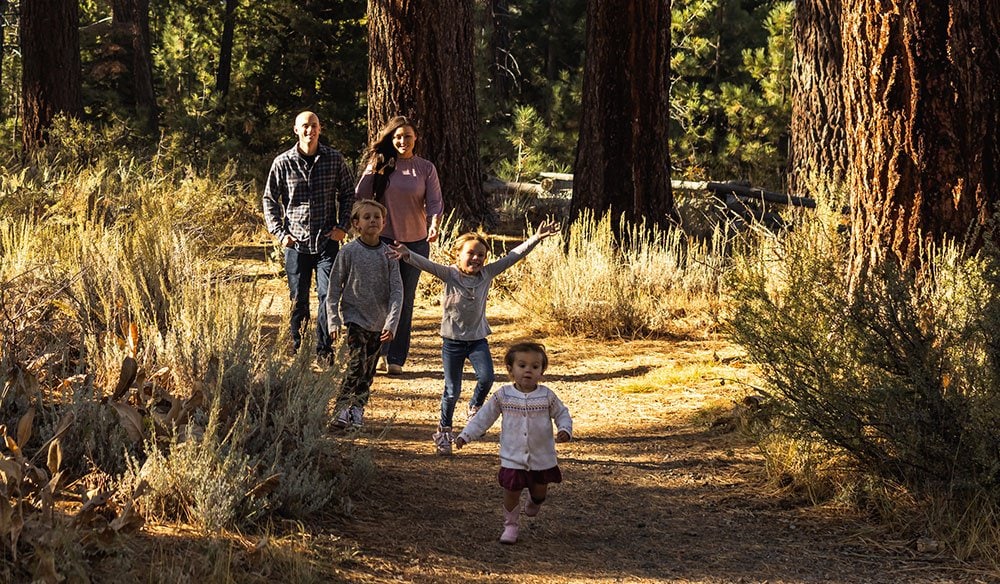Community Health Improvement Week
 (South Lake Tahoe, Calif.) June 10–14 is Community Health Improvement Week; a time to recognize the people and organizations working in partnership to improve the health and well-being of individuals and communities.
(South Lake Tahoe, Calif.) June 10–14 is Community Health Improvement Week; a time to recognize the people and organizations working in partnership to improve the health and well-being of individuals and communities.
Barton is committed to providing high-quality care and staying focused on the most pressing health needs of our community. Earlier this year, Barton launched the 2024 Community Health Needs Assessment (CHNA), a survey initiative to collect direct input from community members, providing invaluable insights into their top health priorities. The findings will be released later this year, and an action committee will work to address these issues, uniting members from various organizations within the community.
The past several surveys have identified the top three health concerns as mental health, substance use, and access to care. These are concerns that persist in the Lake Tahoe community, as well as nationwide, and Barton works cooperatively with regional health and social service providers to address and improve these complex health concerns.
Over the past three years, Barton has made strides in the following critical areas:
Mental & Behavioral Health
Providing adequate services for mental and behavioral health is a challenge nationwide. Locally, the Behavioral Health Network, an alliance of local social service providers led by Lake Tahoe Unified School District, works to coordinate care among agencies and build programs to benefit the community, such as the Children and Youth Behavioral Health Initiative.
Through this effort, the Lake Tahoe Unified School District has added Wellness Centers to South Tahoe High School and South Tahoe Middle School to assist children with their mental well-being while on campus. In addition, El Dorado County Behavioral Health continues to offer outpatient mental health services to adults and children, as well as wellness groups, intensive case management, and assisted outpatient treatment.
Just as people are routinely screened for heart disease, diabetes, and cancers as a way to detect serious illness early and start treatment as needed, depression screenings are also becoming a normal part of preventive care. At Barton Health, patients are screened for depression by their primary care provider, a step that can help identify critical signs early, when treatment may be most effective. And in the last three years, Barton has welcomed a new adult psychiatrist and new licensed clinical social workers to broaden the community’s access to a medical care team should they need treatment.
Additionally, through community outreach, including community wellness lectures, articles, and videos, medical experts educate community members to recognize the signs, learn how and when to seek help, and understand how to reach out to others who might be experiencing a mental health crisis.
Substance Use
South Lake Tahoe organizations continue to focus on educating the community and providing access to life-saving measures for Opioid Use Disorder (OUD).
The Tahoe Alliance for Safe Kids (TASK) is a local non-profit organization that helps raise awareness and effectiveness of NARCAN, a potentially life-saving medication designed to reverse the effects of an opioid overdose. Via TASK, the overdose-reversal drug is distributed to high-traffic areas, as well as fund programs in the local school district, such as Challenge Day, The Soul Project, along with education and training. TASK also participates in the local Drug Take Back Days, in partnership with the South Lake Tahoe Police Department.
NARCAN is available for free throughout the community, including at the Barton Emergency Department, Barton Community Health Center, and Barton Primary Care/Urgent Care, Tahoe Coalition for the Homeless, El Dorado County Public Health and RJ Counseling.
The Medication-Assisted Treatment (MAT) program, launched in 2019 at Barton, continues to be effective in the treatment of opioid use disorders, helping people begin and sustain recovery with the use of medication and behavioral counseling. In the past three years, patient utilization of this program has increased by 27.5%. Barton partners with RJ Counseling to provide counseling and has reported that 73% of patients participating in the Medication-Assisted Treatment Program have reported continued abstinence from opiates.
Since 2021, Barton Memorial Hospital has been recognized by the national quality rating system, Cal Hospital Compare, on their Opioid Care Honor Roll, with a ‘Superior Performance,’ recognizing Barton’s advanced, innovative opioid stewardship strategies.
Access to Care
Barton continues to recruit new medical providers and add services to meet the growing needs of our community. New providers have been added in mental and behavioral health, neurology, urology, cardiology, and pediatrics.
With less people utilizing the hospital and more focus on preventative care, Barton and its care team have placed added focus on connecting patients with primary care providers, increasing the number of patients with an assigned primary care provider by 2,212 over a three-year period.
And as convenience becomes increasingly important in our busy lives, Barton Health launched On My Way, an online tool giving patients in need of urgent care services the ability to schedule their visit to Barton Health's Urgent Care and Quick Care clinics. This user-friendly feature allows patients to virtually "get in line" before reaching the care clinic. The feature not only reduces wait times at our urgent care clinics but also enhances the overall patient experience and accessibility to care within our community.
Community health and collaboration is foundational to Barton’s mission. We are proud to serve our community and we have immense gratitude for the commitment of the partners involved in this effort, and look forward to together creating a healthier community.
Chris Proctor is the Director of Community Benefit with Barton Health. To learn more about Barton Health’s Community Health Needs Assessments, visit BartonHealth.org.